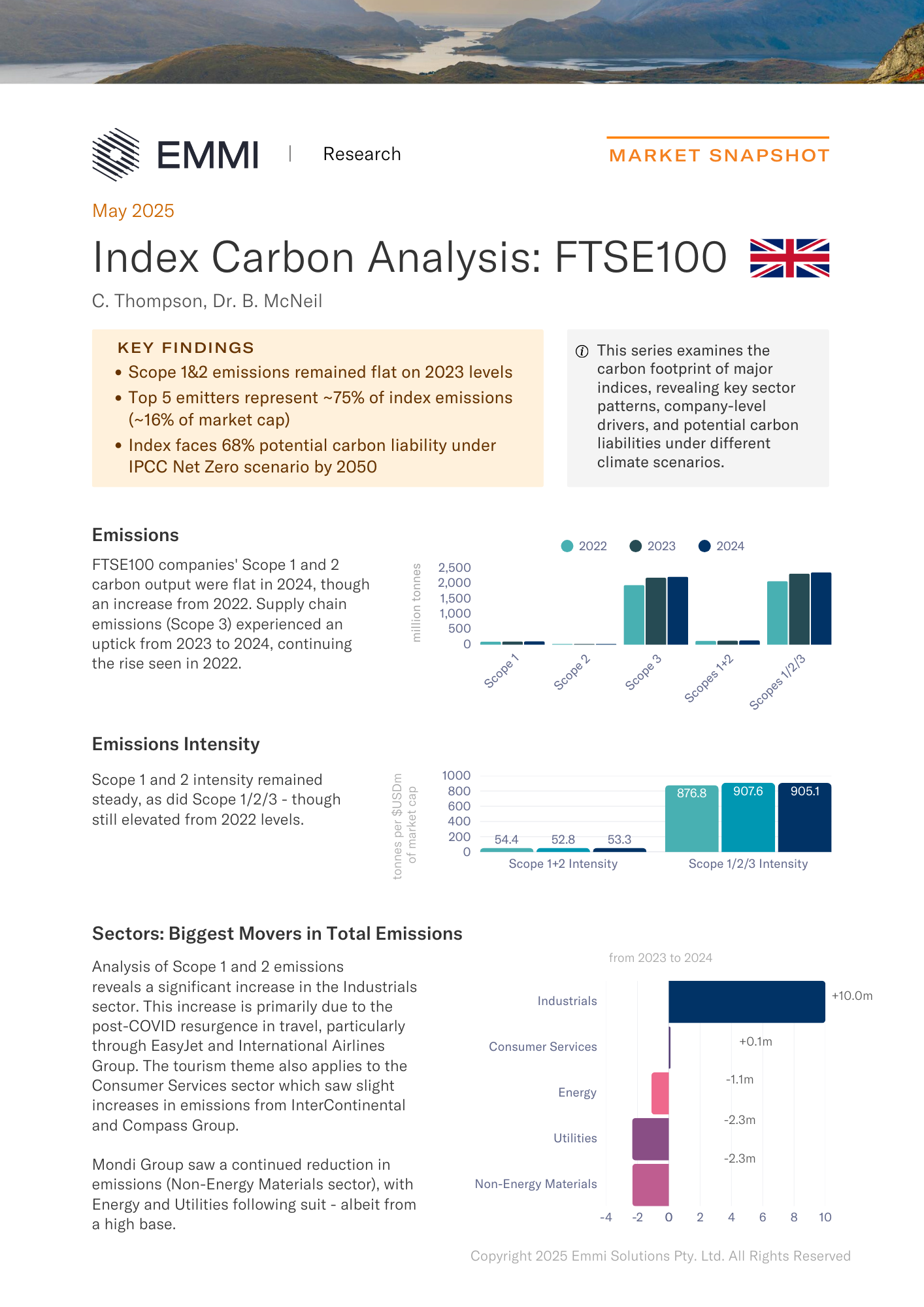Index Analysis
Our latest Market Snapshot examines emissions trends across London’s FTSE100 index. It highlights the out-weighted impact that legacy industries can have on the carbon profile of an index, and the potential cost and risks to an economy.
Key Findings:
- Scope 1&2 emissions were flat in 2024, Scope 3 ticked up
- Top 5 emitters represent ~75% of index emissions (~16% of market cap)
- Index faces 68% potential carbon liability under IPCC Net Zero scenario by 2050
Analysis of Scope 1 and 2 emissions reveals that the overall stability conceals a significant increase in the Industrials sector. This increase is primarily due to the post-COVID resurgence in travel. It is partially offset by emissions reductions in the Non-Energy Materials, Energy and Utilities sectors.
The FTSE100 includes a number of oil and gas giants. Some of these companies (notably Shell, BP and Anglo American) are making strategic moves into low-carbon technologies, which have led to reductions in their Scope 1 and 2 emissions between 2022 and 2024. Meanwhile, others such as Rio Tinto and Glencore have doubled down on extraction-based business models, leading to continued increases in total emissions in the period.
For investors, and the global economy, fossil fuel-generated energy and mineral extraction are important and profit-making sectors. However, these patterns translate into markedly different transition risk profiles - maintaining carbon-intensive operations will likely result in significantly longer-term losses as climate policies tighten globally.
Download the full document
Stay in the know. Subscribe to updates
Find out about our latest developments, and get our research reports first.

